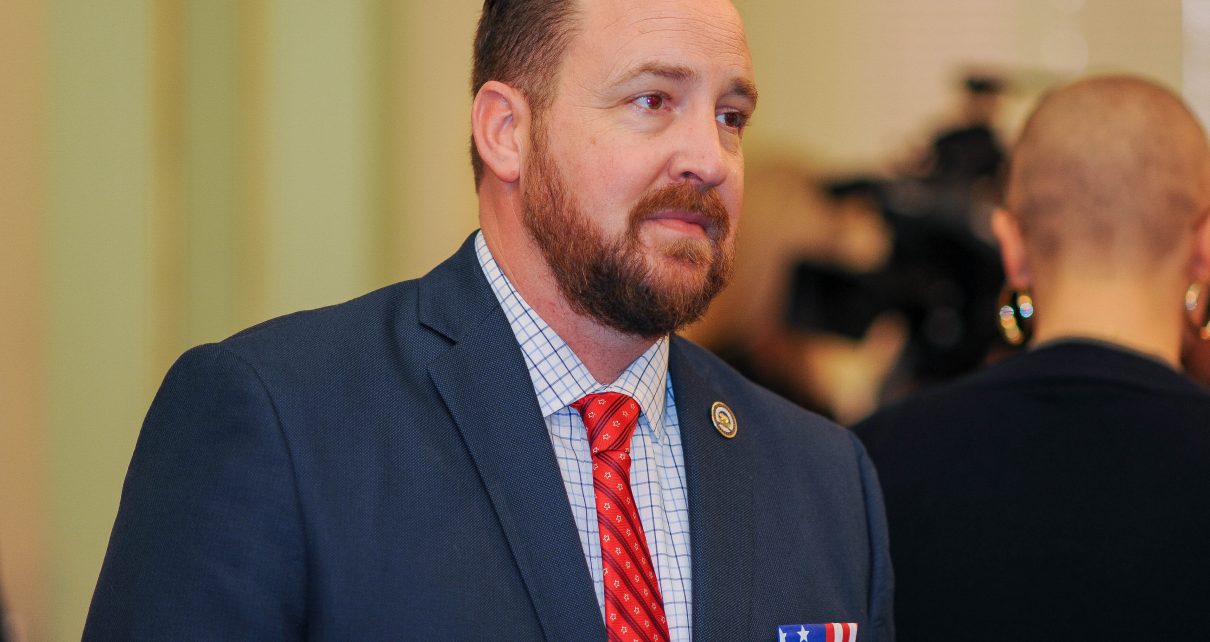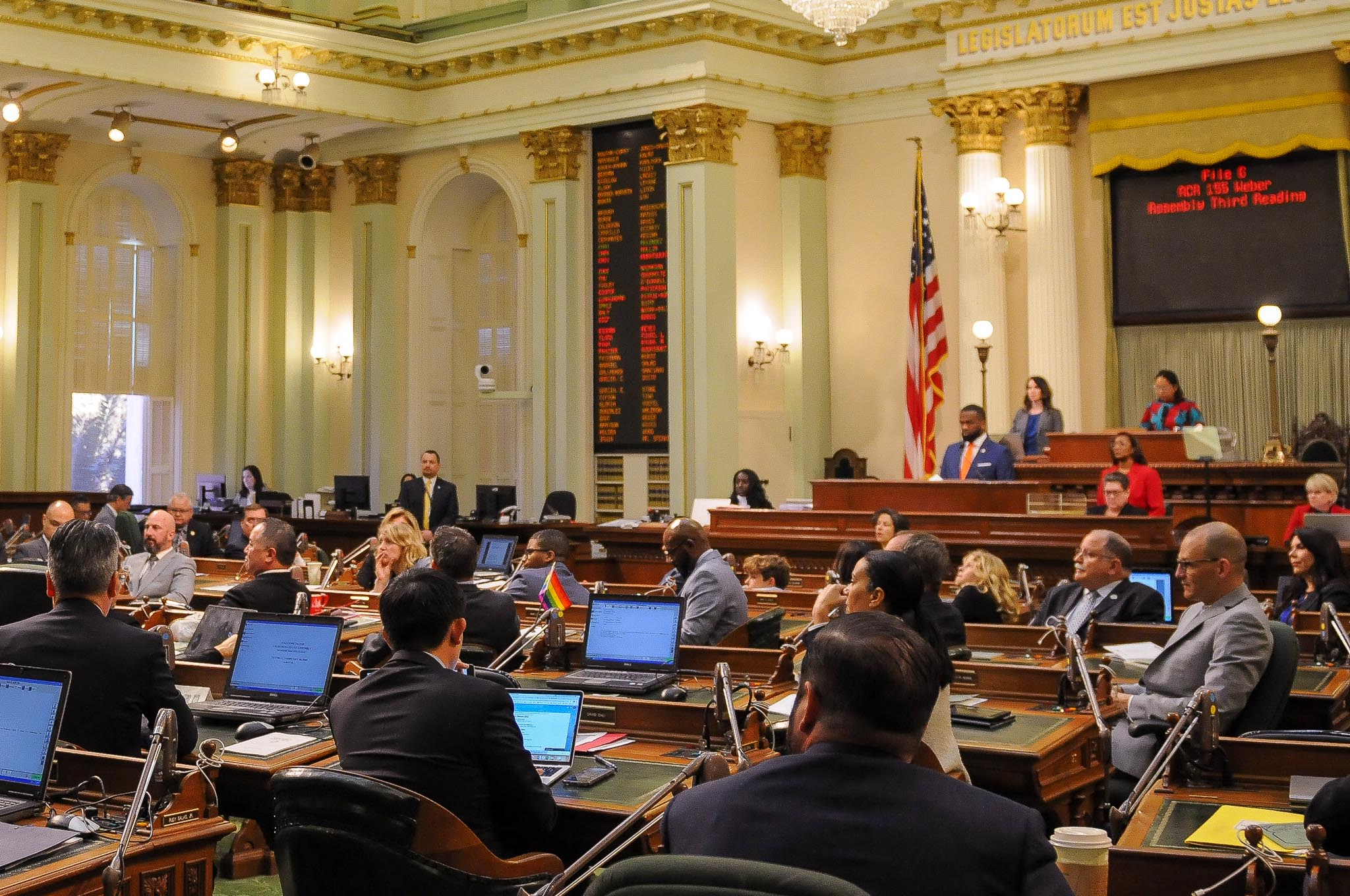
Assemblyman Devon J. Mathis. (Photo: Kevin Sanders for California Globe)
‘Outdated Terminology’ Bills Come Into Effect
There’s no reason to use the term ‘Retard’ in our laws
By Evan Symon, January 2, 2024 1:11 pm
Two bills signed by Governor Gavin Newsom last year that aimed to replace words and phrases now considered outdated went into effect on Monday, changing the language of many state laws and official terminology henceforth.
One bill that went into effect on January 1st was Assembly Bill 248. Authored by Assemblyman Devon Mathis (R-Visalia), AB 248 makes changes to provisions in state law to eliminate obsolete terminology. This includes “mentally retarded persons,” “mentally retarded children,” “retardation,” and “handicap.” Under the bill, also known as the Dignity for All Act, these terms will be replaced by terms and words such as “individuals with disabilities” or “individuals with intellectual or developmental disabilities”.
“Our attitude towards people with intellectual or developmental disabilities has changed over time,” said Mathis in an AB 248 fact sheet last year. “No longer is it acceptable to demean people or use demeaning language. Our laws, unfortunately, don’t reflect our current understanding. Ugly relics of the past remain in the words of the very laws that are meant to protect us all equally.
“There’s no reason to use the term ‘Retard’ in our laws. The term is outdated, hateful and offensive – and it can equally be replaced with a more accurate, inclusive term, or removed altogether without altering the meaning of a statue, should that statute not be tainted for some other reason. The words we use matters.”
Two bills come into effect
Another bill, Assembly Bill 1130, also went into effect on Monday. Authored by Assemblyman Marc Berman (D-Menlo Park), AB 1130 deletes the reference to an “addict” in the California Uniform Controlled Substances Act text and instead replaces it with the term “a person with substance use disorder,” among other technical non-substantive changes.

“Assembly Bill 1130 will contribute to the reduction of stigma for individuals with substance use disorder by replacing outdated, perforation terminology in our laws,” said Berman last year. “This change is consistent with guidance from the National Institutes of Health to avoid terms that increase stigma and negative bias when discussing addiction.”
With bills now law and the changes made, the reactions range from positive to mixed, depending on the bill.
“AB 248 was very well received,” said Dana a Capitol staffer, to the Globe on Tuesday. “A lot of groups representing mentally challenged individuals as well as every member of the Assembly and Senate were for it. The word, in the last few decades, has taken a more insulting, negative connotation, and it was time to update it. Plus, there are better medical terms now. So socially, medically, and for other reasons, it was the best option and made total sense.
“AB 1130 wasn’t as enthusiastically reached. It’s only for one small part. ‘Addict’ isn’t outdated and is still widely used, and it just seems like here a sparing of feelings and more of making a point rather than wanting big change. Everyone just kind of rolled with the latter. And again, addict is still widely used, even with medical personnel. The word in AB 248, it’s become a hateful word. Addict, not really. But, this year, the language has now changed because of the bills.”
More language changing bills are expected to be introduced later this year.





The words fascism and communism were replaced with the word “freedom”. Open and free communication is now “missinformation”. And anyone who opposes the Democrats are now referred to as “rascists”.
“Addict” may have been replaced, but “junkie” wasn’t.
Is “fggt” still OK? Asking ‘cuz I use it a lot…intentionally and willfully.
How about “Reproductive care” = killing a fetus.
The people who wrote these laws are certainly retarded. Of course, this does absolutely nothing. An “undocumented person” is still an illegal alien no matter how they seek to change our language.